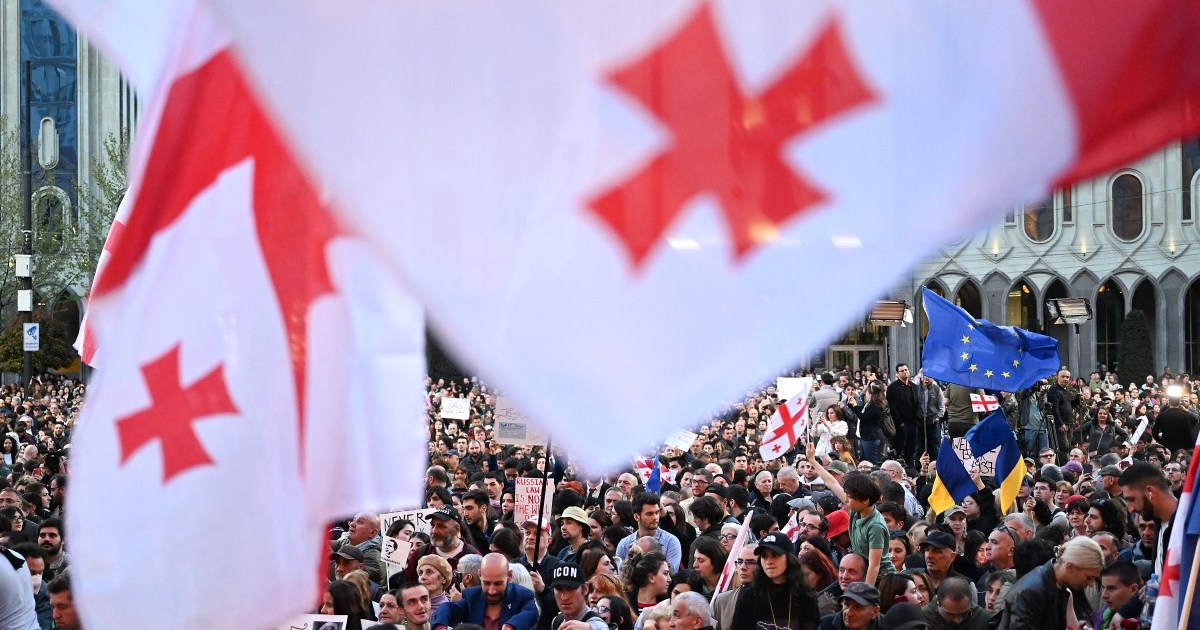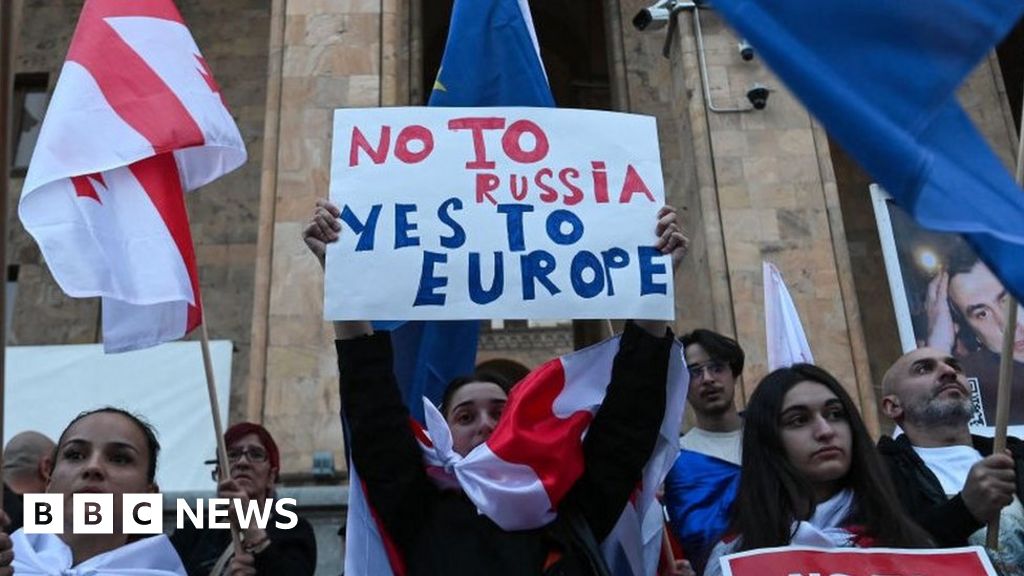On Monday, Tbilisi, the capital of Georgia saw a massive gathering of over 5,000 protestors outside the parliament building opposing a proposed Foreign Agents bill labeled as the foreign agents law.

Also Read: Singapore PM Lee Hsien Loong to Step Down on May 15 After 20 Years
Last year Georgia saw protests forcing the government to shelve a similar bill aimed at regulating organizations receiving foreign funding. The ruling Georgian Dream party has revived the legislation.
The Foreign Agents Bill mandates non-governmental organizations and media outlets receiving over 20% of their funding from abroad to register as “organizations serving the interests of a foreign power.”
Some argue that this labeling could stifle dissenting voices and undermine democratic principles in Georgia.
Protesters and opposition leaders draw parallels between the proposed bill and authoritarian laws in Russia alleging an attempt to replicate Moscow’s methods of suppressing opposition.
The Foreign Agents bill’s critics fear a slide towards authoritarianism and a departure from Georgia’s aspirations of European integration.
Prime Minister Irakli Kobakhidze defends the Foreign Agents bill citing the need for financial transparency among grant recipients.
Georgian Dream asserts that the legislation plans to combat what it perceives as “pseudo-liberal values” imposed by foreign entities.
Monday’s protests saw confrontations between protestors and police with reports of arrests and injuries. Inside the parliament, chaos erupted as opposition lawmaker Aleko Elisashvili physically assaulted Mamuka Mdinaradze, leader of the ruling party.
Both the European Union and the United States have condemned the Foreign Agents bill labeling it incompatible with Georgia’s aspirations for EU membership.
Georgia’s pro-Western stance faced allegations of authoritarian tendencies within the ruling party. President Salome Zurabishvili vows to veto the bill if passed.
The Foreign Agents bill which requires organizations receiving funding from abroad to register as foreign agents or face fines, has criticism both domestically and internationally.
Critics of the Foreign Agents bill have drawn parallels with similar legislation in Russia, often used by the Kremlin to suppress voices, earning it the moniker “the Russian law.”
Also Read: Arizona Denounce Revived 1864 Abortion Ban
Last year the ruling Georgian Dream party shelved the Foreign Agents bill following public outcry. Its recent announcement of reintroducing the legislation reignited public anger leading to renewed protests.
Inside the parliament tensions escalated as opposition lawmaker Aleko Elisashvili physically confronted Mamuka Mdinaradze, the parliamentary leader of the ruling party.
Prime Minister Irakli Kobakhidze’s meeting with American, British, and EU ambassadors indicates the bill’s implications and the government’s efforts to address international concerns.
President Salome Zourabichvili, a staunch supporter of EU integration, has vowed to veto the Foreign Agents bill if passed, addressing Georgia’s commitment to democratic values and its aspirations for European integration.
The EU which granted Georgia candidate status has condemned the proposed law addressing its incompatibility with European values and the Euro integration process.
Despite criticism and warnings from international actors, the ruling Georgian Dream party remains determined to push forward with the legislation citing the need to combat what it perceives as foreign interference and promote transparency.
The proposed legislation targets NGOs, media organizations, and individual journalists raising fears of stifling freedom of speech and undermining Georgia’s democratic progress.
Also Read: Court Rules Switzerland Violated Human Rights in Climate Case by 2,000 Women























